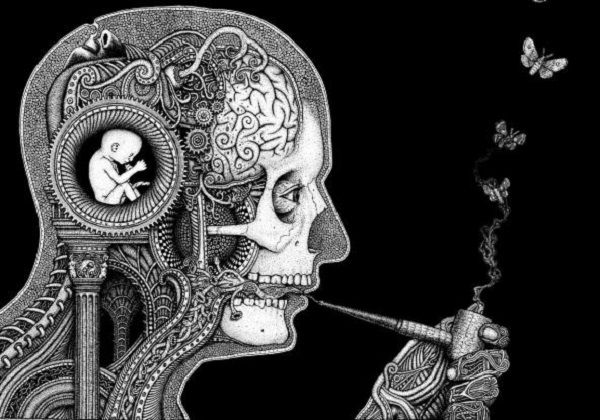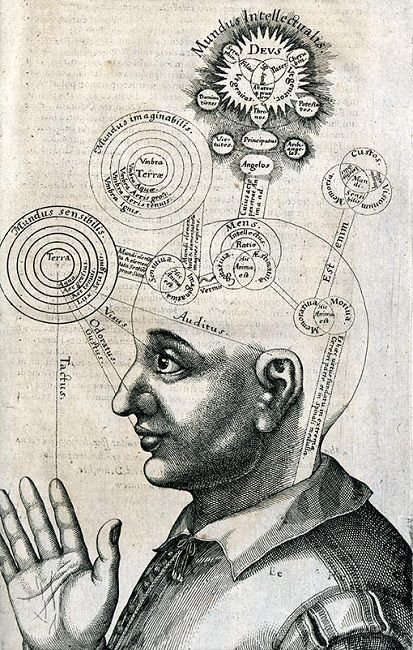Philosophy and science.
With its birth in the 6th century through the New Age in ancient Greece, philosophy began to develop as a result of diametrically opposed certain theoretical views - materialism, idealism, dynamism, staticism, knowledge through the senses, knowledge through reason.
In this dichotomy of philosophy is also the attitude towards its essence. There is no question that philosophy is knowledge and as such is expected to be scientific knowledge.
The other concept is that philosophy has an independent status - it is not a science, although it is knowledge.
At the beginning of the 19th century, one of the greatest philosophers in history - Hegel sets out the three requirements for one knowledge to be philosophical:
- For science, knowledge must have a real object / object of the study
- There are specific methods / approaches to the study
- A theoretical system consisting of conceptual apparatus, principles, law, axiom.

These requirements are used both by certain sciences and by philosophy.
The differences between philosophy and science are not in the absence of requirements, but within the differences of these requirements. Within the framework of the European philosophy, the beginning of which is ancient Greek philosophy. Within the framework of systemic knowledge, science and philosophy exist together until the beginning of the 17th century. Then begins a process of separating natural sciences from philosophy. Until then 1200 years of organized, systematized knowledge has two inseparable internal aspects - both scientific and philosophical. These facts serve the idea that philosophy then ceases to be science without losing any of its usefulness.
There are three main sections in science:
- Theoretical science
- Experimental science
- Applied science (which is a collection of other sciences - medicine, engineering, etc.).
Aspects of philosophical and scientific knowledge.
As part of the general knowledge, philosophy and science fulfill the same requirements, but the essential elements of this knowledge are manifested in the various necessary elements. Object of philosophy - the sciences in their aggregate form can explain the essence of everything that exists, and everything that exists is the complete sum of the observed natural and social phenomena. The subject of philosophy is the world as a whole. Philosophy considers the entire being as the beginning of reasoning - "The world is a unified whole." This is the absolute premise for philosophical reasoning. The world is not considered as a collection of phenomena, but each phenomenon is considered as specific building element of the whole. Unlike the specific methods of the various sciences, philosophy sums them up in a unified methodology that seeks the common. Typical philosophical methods are analysis, synthesis, induction, deduction, reduction. In the field of methods, philosophy sums them up in a unified universal system called methodology. Underlying the general methodology is logic The terms with which philosophy works are extremely abducted and have no sensible analogue (for example, as freedom, society ...) Philosophy uses as a conceptual toolkit the categories that are utterly general concepts without defining / restrictive characteristics. Categories are, for example, form, content, essence, phenomenon (by itself). Philosophy does not care whether it is physical or chemical, it is interested in whether it is a phenomenon.

From Mythology to Knowledge
The notion of civilization comes from the word city. Culture is at the heart of civilization. The original characteristics of the culture define the appearance of the civilization that is built upon it. There are different cultures in the different regions of the planet, but there is something common in all the diversity of diversity, which is characteristic of all cultures without exception - from the most primitive to the most advanced. This common, characteristic of all mankind is mythology. There is no nation without mythology. Mythology is one created by fantastic paintings, a history of the world. Mythological perception collapses in two with the emergence of the philosophy of knowledge and indulgence - an approach to a world in which emotionality is rationalized. The disintegration of the mythological worldview of distinct knowledge and empathy (emotionality) is characteristic of European spiritual culture only. It takes place in the course of the emergence and development of ancient Greek philosophy. The process of decaying the European spiritual culture and the unification of its essential parts led to the emergence of religion and art first, and later of science and philosophy. It is often mistaken for religion and mythology to be the same thing. Religion, whose foundation is faith, exists only as an element of mythology but does not identify with it. For true religion we can only speak when there is faith in only one God, perceived in a mystical way. Until the advent of Christianity, religion and art are linked to two building blocks of indomontage.
Knowledge becomes an absolute goal for ancient Greek philosophy. The very first of its representatives are making differences between knowledge and opinion. Knowledge is collected and systematized information that is built up through evidence. Opinion is a symbiosis between emotions and rational attitude to a particular subject, phenomenon, human behavior, and so on. Ancient Greek philosophy rejects the authenticity of opinion, referring it to the impulse. This philosophy raises its program goal - the gathering of grounded, verifiable knowledge. In it, the reason is rationalism. Thus, one of the most important characteristics of European culture is objectively formed - rationality, that is, the idea of the leading importance of reason, reaching a cult of reason and rational knowledge. This formulation of Greek philosophy creates favorable prerequisites for the separation of knowledge into two distinct parts: philosophical and scientific (or philosophy and science). The complete emancipation / liberation of science from philosophy took place in the early 17th century. The signs of this differentiation are different (use of experiments in artificially created environment, obligatory communication of scientists, mathematization of this kind of knowledge, etc.) From the beginning of the 17th century to our present day, for 400 years, scientific knowledge has made great progress. The pace of this progress is accelerating. Scientific knowledge is accomplished by changing the leading sciences. The first stage of free development is the mechanics (the basis of physics). At the beginning of the 19th century, chemistry gained a leading edge among others. By the end of the 19th century, biology has been a leading position. From the end of the 19th century (with the discovery that the atom is decomposable) until the 1950s, science is again physics. Since the 1980s, biology has been a leading science.
SUMMARY: Apart from the subject and the methods of research, the philosophy differs from its specificity and theoretical superstructure from its science and its functional specifics. Science seeks the essence of things and phenomena, no matter in what area they appear. Philosophy is interested in their meaning, that is, in their functionality.
Read Alain Badiou, who proposes a very novel proposition about the relationship between philosophy & science. For him, science is one of the 4 conditions for philosophy and in fact, ontology is mathematics!
Downvoting a post can decrease pending rewards and make it less visible. Common reasons:
Submit
Thanks I will see his works.
Downvoting a post can decrease pending rewards and make it less visible. Common reasons:
Submit
Philosophy in application is good for public discourse because of its unique reasoning.
Downvoting a post can decrease pending rewards and make it less visible. Common reasons:
Submit
Very true :)
Downvoting a post can decrease pending rewards and make it less visible. Common reasons:
Submit
Ancient philosophy is so interesting
Downvoting a post can decrease pending rewards and make it less visible. Common reasons:
Submit
Its good to know more about philosophy and science. Thanks to you
Downvoting a post can decrease pending rewards and make it less visible. Common reasons:
Submit
You are welcome :)
Downvoting a post can decrease pending rewards and make it less visible. Common reasons:
Submit
You do nothing without philosophical proof ....... The world at large is philosophy, you need hypothesis to see through
Downvoting a post can decrease pending rewards and make it less visible. Common reasons:
Submit
You got a 5.06% upvote from @postpromoter courtesy of @godflesh!
Want to promote your posts too? Check out the Steem Bot Tracker website for more info. If you would like to support the development of @postpromoter and the bot tracker please vote for @yabapmatt for witness!
Downvoting a post can decrease pending rewards and make it less visible. Common reasons:
Submit
Thanks for this!
Downvoting a post can decrease pending rewards and make it less visible. Common reasons:
Submit
No problem :)
Downvoting a post can decrease pending rewards and make it less visible. Common reasons:
Submit
philosophy and science are two interdependent things, Philosophy of science is a sub-field of philosophy concerned with the foundations, methods, and implications of science. The central questions of this study concern what qualifies as science, the reliability of scientific theories, and the ultimate purpose of science. This discipline overlaps with metaphysics, ontology, and epistemology, for example, when it explores the relationship between science and truth....
Downvoting a post can decrease pending rewards and make it less visible. Common reasons:
Submit
Great post! I believe science and philosophy are in two different spheres, nevertheless they don't exclude each other. While science can make new discoveries in our phenomenological world, it does not (based on its definition) give answers to the proper use of its knowledge and findings. On the other hand, philosophy (and ethics) are allowed to give guidelines on how to apply certain discoveries. Every scientific discovery has to potential to be beneficial for humanity or to harm mankind. One example for this is atomic energy. Although it helped building societies by providing enermous amounts of energy, it has caused pain and death to millions of people.
Downvoting a post can decrease pending rewards and make it less visible. Common reasons:
Submit
Nowadays, lots of member of the Steemit is writing about this topic. I will share the member who is made some comment by me. I will add my answer here also. What do you think about my comment?
@juvyjabian
@gric
This is my thoughts about the topic:
"Although science and philosophy are are related, actually they are two far corner of a square. The common point is just curious. Both science and philosophy ask the unknown but science must be realistic meanwhile philosophy may not be. If you cannot prove something you believe it is just a tought similar as philosophy.
There are some exceptions for this. For example, Einstein postulates that nothing can pass speed of light. This can be philosophy also. There are some explanation about this issue but this is not a theory. Also there is no confliction with this postulates so we can use this postulates describing somethin. For some calculations we need these kind of postulations. However, you cannot say there is no gravity without any explanation. In philosophy you can. Philosophy can be limitless,but science cannot be."
Downvoting a post can decrease pending rewards and make it less visible. Common reasons:
Submit
Nice article, you do a great job of showing the parallels between philosophy and science. Keep it up!
Downvoting a post can decrease pending rewards and make it less visible. Common reasons:
Submit
great info ! thanks ;)
Downvoting a post can decrease pending rewards and make it less visible. Common reasons:
Submit